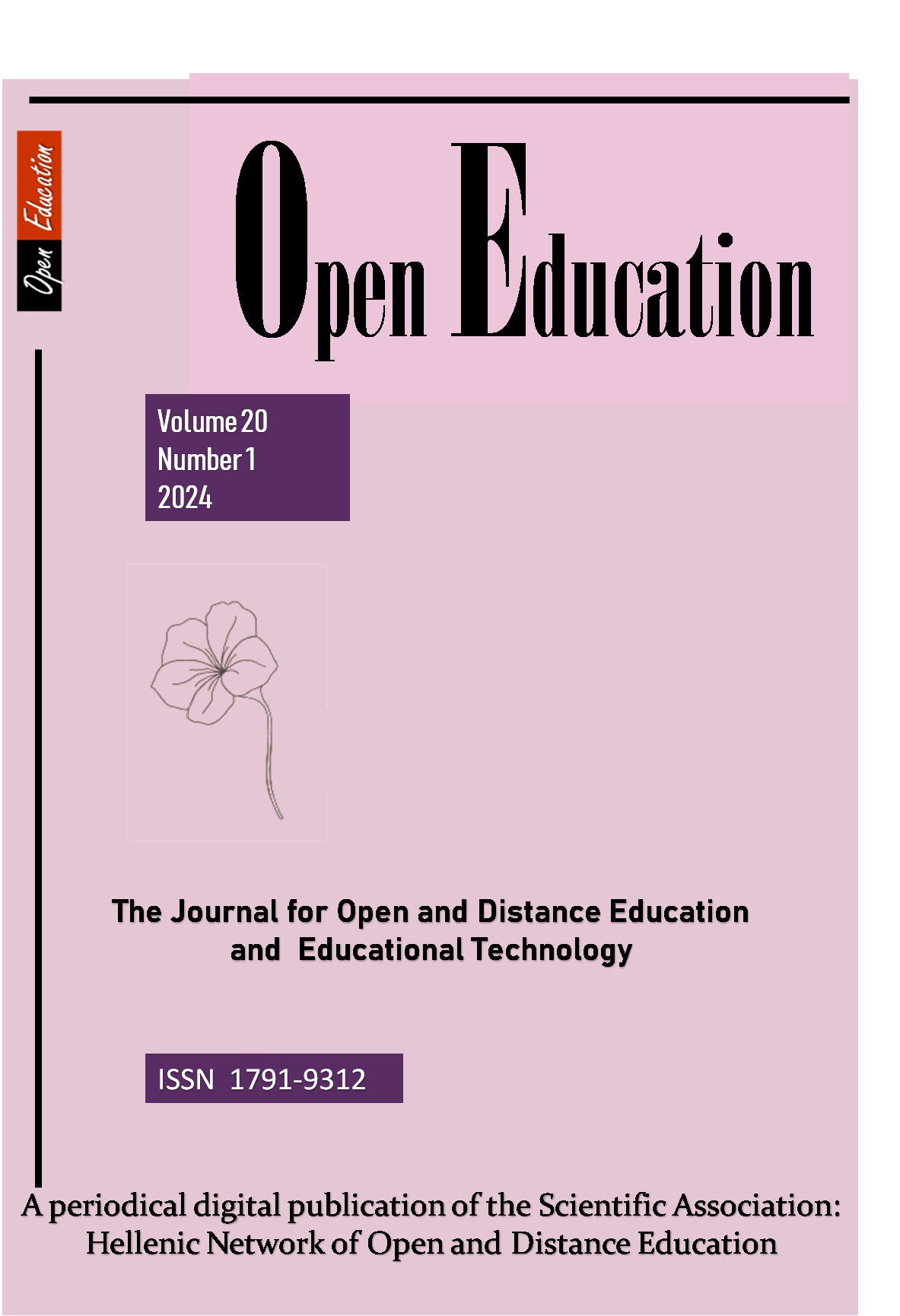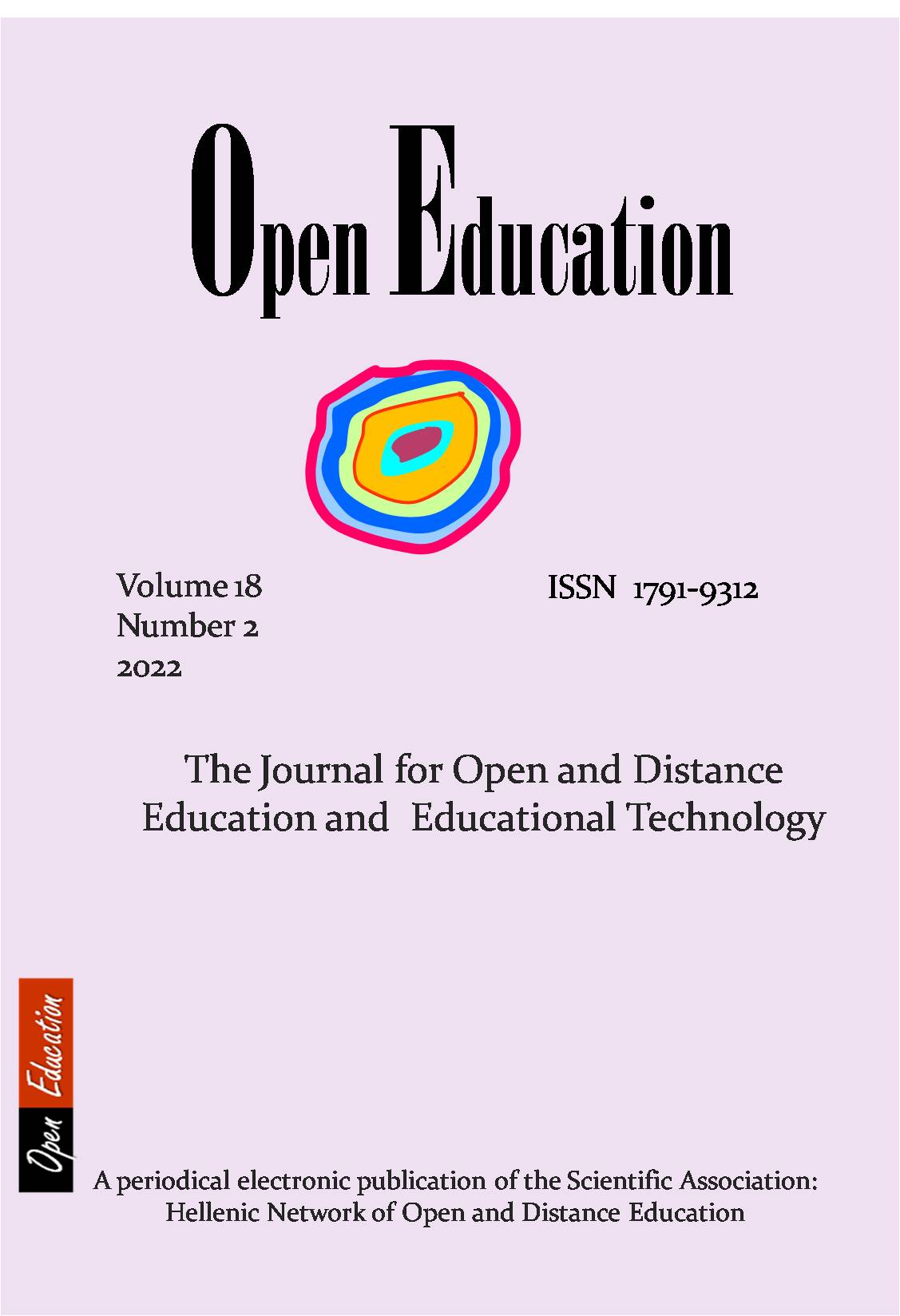Open, distance education and self-directed learning of teachers during Covid19 pandemic crisis
Περίληψη
The fields and motivations of self-directed learning are for adult educators a matter of their lifelong learning. Teachers openly and remotely train themselves in various fields and develop knowledge, skills and attitudes. These fields include education, computer science, arts, environment, special education, and school psychology Teachers’ motivations mainly include their personal and professional development, their socialization, offering to other people, and improvement of their life quality. The present research, by means of a qualitative approach, attempted to study the fields and motivations of primary school teachers in terms of their self-directed learning. The semi-structured interview technique was chosen for data collection. The results showed that teachers’ fields and motivations serve their daily school needs. They are related to their personal and professional development as also the critical thinking of both themselves and their students afterwards. Especially due to the Covid19 pandemic crisis, the teachers’ training needs are carried out openly and remotely. Their participation in various programs, but also their future intention to participate, enhance the need to develop self-directed learning skills, as well as e-learning programs to this end. The present study can contribute to the advance of knowledge and practice in the development, promotion and planning of self-directed learning interventions in open and distance education, while its contribution lies in the fact that no similar research has been implemented in the field of self-directed learning and its connection to lifelong teacher education.
Λεπτομέρειες άρθρου
- Πώς να δημιουργήσετε Αναφορές
-
- Ενότητα
- Άρθρα

Αυτή η εργασία είναι αδειοδοτημένη υπό το CC Αναφορά Δημιουργού – Μη Εμπορική Χρήση – Παρόμοια Διανομή 4.0.
Οι συγγραφείς των άρθρων που δημοσιεύονται στο περιοδικό διατηρούν τα δικαιώματα πνευματικής ιδιοκτησίας επί των άρθρων τους, δίνοντας στο περιοδικό το δικαίωμα της πρώτης δημοσίευσης. Άρθρα που δημοσιεύονται στο περιοδικό διατίθενται με άδεια Creative Commons 4.0 και σύμφωνα με την άδεια μπορούν να χρησιμοποιούνται ελεύθερα, με αναφορά στο/στη συγγραφέα και στην πρώτη δημοσίευση για μη κερδοσκοπικούς σκοπούς και με δικαίωμα τροποποίησης μόνον με παρόμοια διανομή (αν αναμείξετε, τροποποιήσετε, ή δημιουργήσετε πάνω στο υλικό, πρέπει να διανείμετε τις δικές σας συνεισφορές υπό την ίδια άδεια όπως και το πρωτότυπο).



